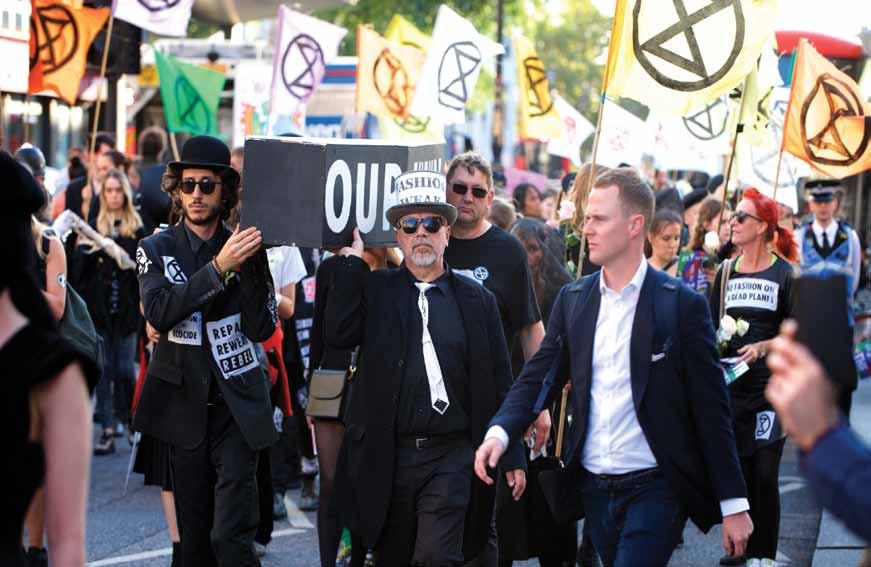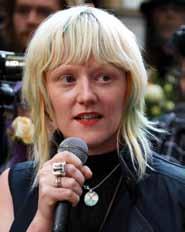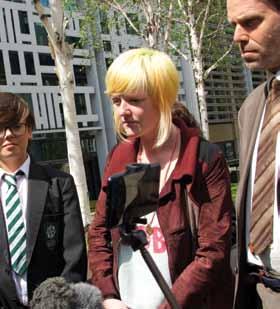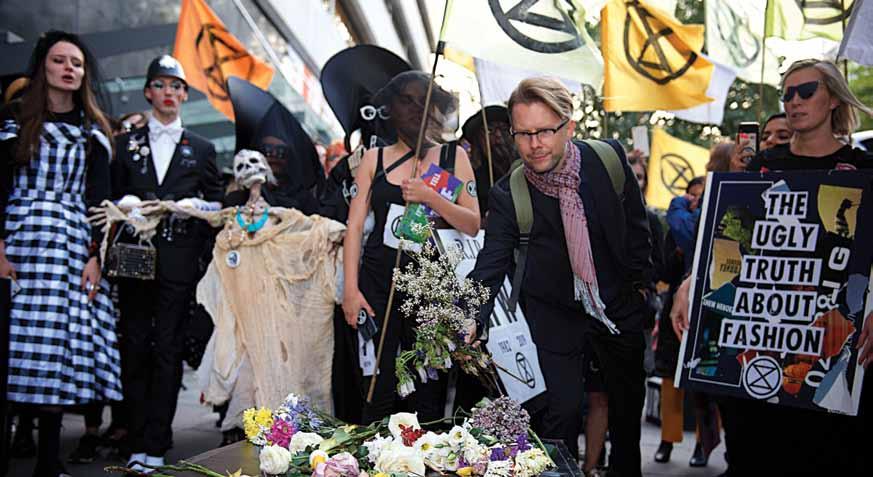
5 minute read
Meet the Extinction Rebellion co-founder from Peckham Rye

Advertisement
Interview by Cara Cummings
It’s no surprise Clare Farrell describes the last eighteen months as “a bit of a whirlwind”. Since Extinction Rebellion launched in October 2018, its activists have brought London to a standstill, twice; blocked roads, ports and runways across the UK; poured fake blood over Downing Street, gone on mass hunger strike and glued themselves to planes, trains, and even the House of Commons viewing gallery - naked - to demand action on climate change. And that’s just in this country.
The movement’s headline-grabbing, non-violent tactics have brought the climate crisis to national attention and ensured it stays there. Clare didn’t predict XR’s rapid rise - “Did I expect it take off to this extent? No, of course not!” - but its pacey expansion reflects the severity of the crisis at hand. “If we don’t do anything,” she explains, “we’re committed to a 3-4 degree warmer world by the end of the century at a minimum. It’s questionable whether human beings can adapt to even two or three degrees, especially at the pace it’s going to come. Some think we’ll hit 1.5 this coming decade, which is supposed to be the limit. You can’t just press a button and go ‘oh s**t, we’re there now, turn it off’”.
The straight-talking former fashion designer doesn’t mince her words on what a warmer world could entail. “Potentially big sea level rises - by 2050, loads of London underwater. Loads of where I grew up in the north east underwater. A Welsh coastal village, Fairbourne, is being decommissioned already. The World Bank said that 140 million people could be displaced by mid-century. People are going to lose their homes in Brighton, in Hull, in Plymouth. Where the f*** are they going to go?

“There’ll be no business continuity, no predictable weather. Roger [Hallam, XR co-founder] has been criticised for saying that six billion people will die this century. That’s an atrocity worse than anything in human history. The lowest estimate I’ve heard from scientists is about 4 billion. Look at South Africa right now: the drought that’s there [the worst in 100 years] is destroying people’s homes, livelihoods, crops. I saw a message that said people are drinking out of animal troughs and shooting each other over access to water. That’s now.
“I think in ten years’ time, people are going to look back at this moment and think: why weren’t millions of us in the street demanding that something happens?”

“Read about it. Stare it in the face. Get upset - then dry your eyes and get organised
Clare went through that thought process - “the ‘dark night of the soul’ when we realise we’re totally f**ked” - before co-founding XR with fellow activists. “I felt like an insane person,” she explains, “because the rest of the world was acting like this isn’t real. That’s the pain of living in a system that doesn’t want to change: you can see what’s coming down the road and there’s no collective response. To meet people and start doing action was cathartic; a way of doing the right thing, resisting what is morally unacceptable for me.”
Disruption-focused tactics have earnt XR a notorious reputation and exposed the movement to significant criticism. But for Clare, it’s a necessary evil. “Unless you create significant disruption, nothing changes,” she says. “Two million people marched against the war in Iraq. It’s been super disheartening for a whole generation of activists to live with that level of mobilisation being completely ignored.”
Not that XR’s strategy is always easy to action. “Getting nicked is frightening,” Clare admits, “But when you’re sat in a police cell it’s like: what else can I do? It feels like something, when the world is doing nothing.”

XR has also been accused of lacking empathy for society’s least well off, following a disastrous rush hour tube protest at Canning Town. “There’s a conversation to be had about whether we’ve tried hard enough to do outreach in London,” says Clare. “The low-hanging fruit is often people who are middle class. We have a socioeconomic issue here, which is the conditions under which we’re working. I’d prefer to say: yes, we’ve f**ked it up and we’ll go and fix it. But it’s not easy to fix, so I don’t want to answer like that because it’s
not simple. All we can say is: we’re trying. But we have to do something now, in the conditions society is in. Perhaps that’s the best way, because society is really unjust and in theory this is a great leveller - climate change is coming for everyone. It doesn’t matter how rich you are.” What can people do now about the climate crisis? “Be in open rebellion against the state,” Clare says simply. “Something’s gotta give - the political system won’t do it. Look at transition towns and people who’ve taken control of local politics; there are a few cases in the UK. Stop flying, eating so much meat and driving private cars all the time. Stop building things out of concrete; it’s got a huge carbon footprint hardly anyone talks about. Stop deforestation. Some of it’s quite simple really; stop doing the harm.
“Also, read about it. Process it; stare it in the face, because it’s not possible to deal with this unless you really try to accept it. I still sometimes fall apart. Get upset - then dry your eyes and get organised.
“Greta Thunberg said: you get hope through action. There isn’t much hope knocking about at the moment, but you can earn it. That makes me sound like an idiotic optimist, but most people have got it in them.”






